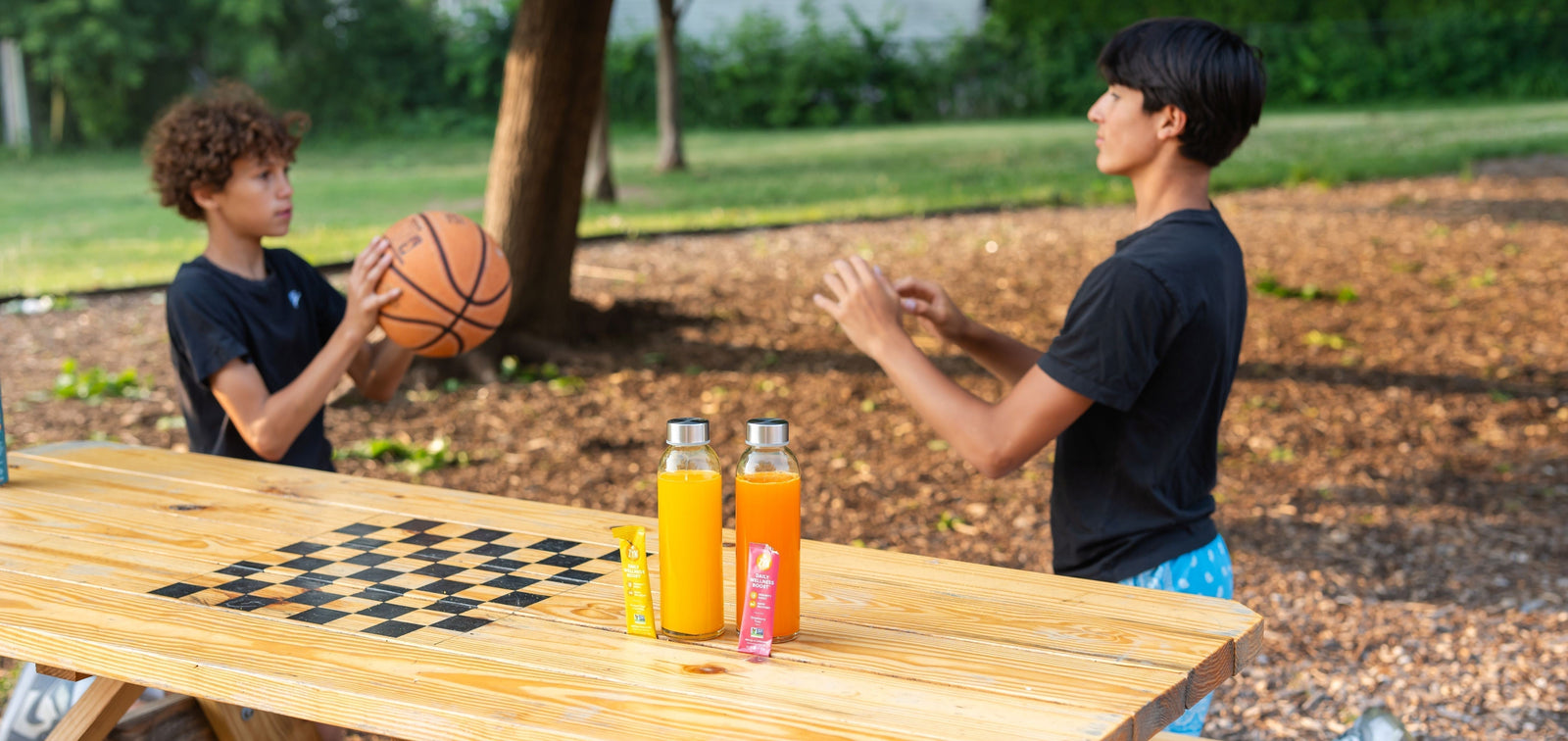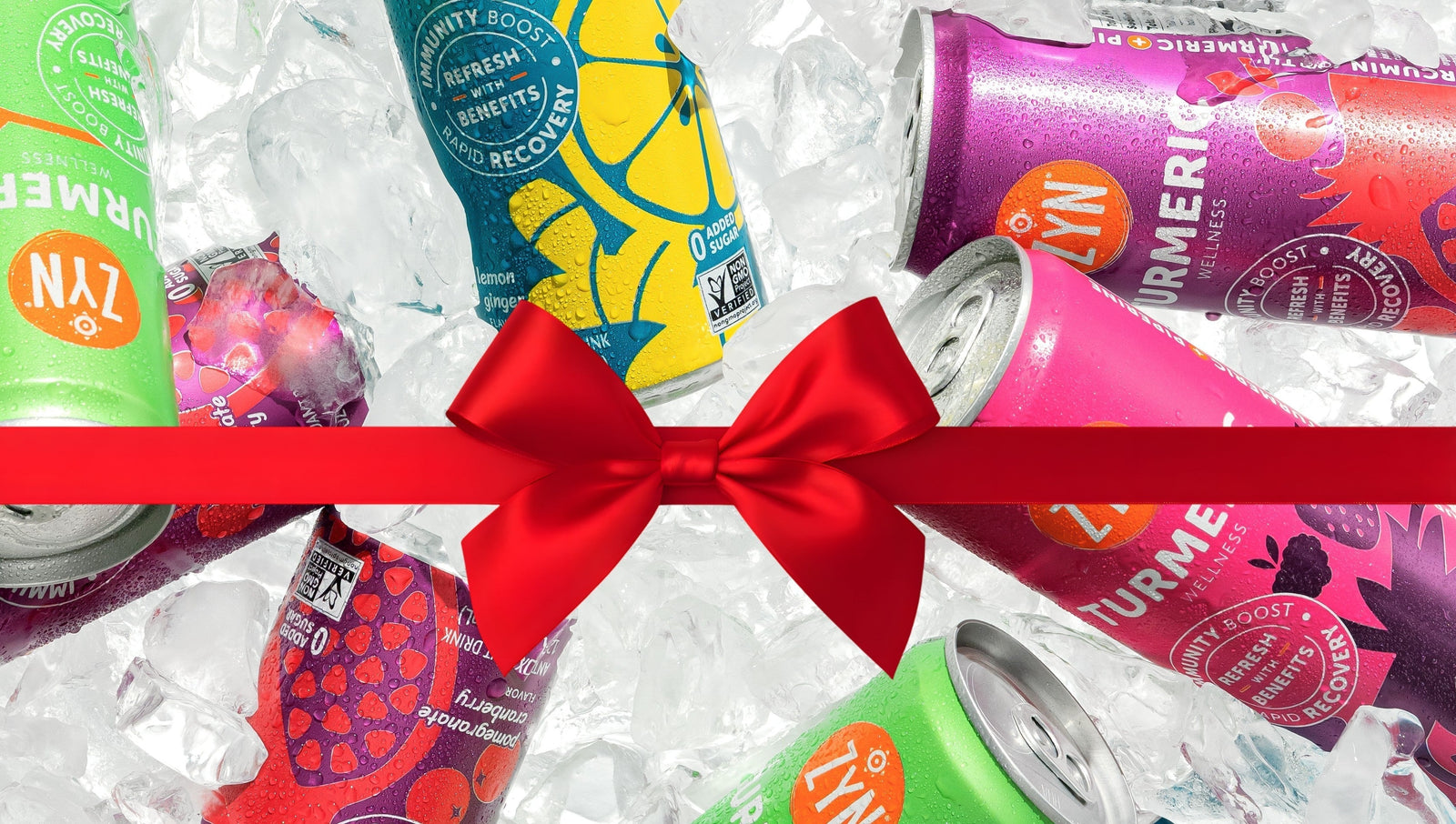Parents are busy! Between keeping the house running, managing calendars, chauffer duties that last hours and making sure our kids are healthy and well-fed, it's a full-time job (and then some). If you've ever wondered how to use nutrition to best support your growing athlete, you're not alone.
According to the NFHS (National Federation of State High School Associations) High School Athletics Participation Survey, more than 8 million students participated in high school sports in 2024-2025. That's a lot of young athletes depending on us to help them stay fueled, healthy, and ready to perform.
Nutrition is an everchanging landscape so let's start with a focus on the basics: building good habits, creating balance, and nurturing a healthy relationship with food.
Fueling for Growth, Health, and Sport
Middle and high school athletes have unique nutritional needs. Rapid growth and development, combined with demanding training schedules, means they require a lot of energy. They need enough calories to support everyday body functions (think heart, lungs, brain, muscles), growth, and athletic performance.
Where to Start: Build a Balanced Plate at Mealtime
¼ plate: Colorful vegetables (and fruits)
¼ plate: Protein
½ plate: Carbohydrates
Add: Healthy fats
Carbohydrates: The Body's Main Fuel
Carbohydrates are a main source of fuel, the brain's preferred energy source and are especially important before and after workouts. Since the body can only store limited amounts, carbohydrates should make up about 50-60% of a young athlete's daily intake. Aim to include at each meal and snack.
Tip: Include a variety of fruits, vegetables and whole grains to meet carbohydrate and fiber needs. Apples (with the skin), peaches, oranges, grapes, sweet potatoes, oats, whole wheat bread and pasta, farro and quinoa.
Fats: Energy and Recovery Support
Fats are essential for energy, growth, body temperature regulation, brain function, hormone balance and absorbing fat-soluble vitamins. They should make up about 25-30% of your athlete's diet.
Include: Full fat Greek yogurt, cheese, cottage cheese (added benefit of containing calcium) as well as foods high in Omega-3 fatty acids such as fish, avocado, olive oil, nuts and seeds.
Protein: Build, Repair and Grow
Why Does Protein Matter So Much for Young Athletes? Protein isn’t just for building muscles - it’s essential for overall growth and development! When you’re eating enough total calories, protein helps support muscle growth, tissue repair, and recovery after exercise.
Protein needs typically make up 10-20% of overall needs but need vary based on your age, size, and the type of sport you play.
· Endurance sports (like cross country, cycling, soccer, rowing, swimming, hockey): 0.5–0.7 grams per pound of body weight
· Strength and power sports (like football, track and field sprinters or throwers, gymnastics, combat sports, baseball, softball): 0.7–0.8 grams per pound
· Some sports fall in the middle of those ranges (like basketball, volleyball, lacrosse, and middle-distance running)
For example, a 120-pound endurance athlete needs roughly 60–84 grams of protein per day.
💡Tip: Your body doesn’t store protein the way it stores carbs or fat. It’s constantly breaking down and rebuilding muscle proteins, so if you go too long without eating protein, your body may start to pull amino acids from muscle tissue to meet its needs. To support recovery and growth, include a source of protein with every meal and snack (except right before training).
Great protein sources: fish, chicken, beef, eggs, tofu, Greek yogurt, cheese, milk, beans, lentils, nuts, nut butters, and seeds.
Snack Smart
Young athletes often need snacks between meals to meet their energy needs. Think about options to have available in between meals, before and after training and before bed.
· Everyday snacks: Fruit with nut butter, Greek yogurt with berries and granola, cheese and crackers, trail mix, energy bites, turkey sandwich, meat stick with grapes.
· Before practice (30-60 minutes): Stick with easy-to-digest carbs like applesauce, granola bar, toast or bagel with jam, graham crackers or pretzels
· After practice: Combine carbohydrates and protein for recovery and repair: peanut butter and banana sandwich, smoothie, Greek yogurt with granola, string cheese and crackers, cottage cheese and fruit, chocolate milk OR a balanced meal.
Hydration: A Game Changer
Even mild dehydration of 1-2% body weight can hurt performance leading to a decrease in aerobic and power performance, decreased strength, increased reaction times and poorer concentration. Encourage your athlete to sip on fluid consistently throughout the day - not just at practice.
A good rule of thumb: Daily fluid goal = half their body weight (in pounds) in ounces of fluid. Example: 120 pounds = 60 ounces of daily fluid. Add extra to replace sweat loss during training.
If your athlete is a heavy sweater, consider electrolyte support. Sodium is the main electrolyte lost in sweat. Lightly salting food or using an electrolyte mix can help.
✅Mom tip: Drink ZYN powdered electrolyte mix is a great option. It provides electrolytes and turmeric for added anti-inflammatory support, all in an easy-to-carry packet.
Maximize Recovery
Between long practices and busy schedules, recovery should always be a focus. Help them bounce back faster by including:
Turmeric (curcumin): A natural anti-inflammatory with antioxidant properties. Drink ZYN includes curcumin with piperine which boost absorption and will support daily hydration goals!
Omega-3 fats: These help reduce inflammation and are found in fish (like salmon), avocado, nuts, nut butters, seeds, ground flaxseed, chia seeds, avocado oil and olive oil.
Colorful fruits and veggies: "Eat the rainbow" to get a variety of antioxidants, vitamins, and minerals that support recovery and immunity.
Final Thoughts
At the end of the day, it's about consistency, not perfection. As parents, our goal isn't to create the perfect meal plan - it's to help our kids develop habits that support their health, development, and performance, both on and off the field.
Michelle Tegenkamp, MS RD CSSD LD earned a BS in Dietetics and Kinesiology from Michigan State University, where she competed in cross country and track and field, and a MS in Nutrition Science from the University of Wisconsin, where she also completed her dietetic internship. She is a board-certified specialist in sports dietetics and the owner of Active Nutrition LLC. Working with private clients and local Universities, Michelle focuses on fueling, hydration, and recovery strategies that reduce injuries and support high training loads across youth, collegiate, and professional settings. She currently serves as the Team Dietitian for Portland Thorns FC and previously served as the Director of Nutrition and Dietetics for the Portland Trail Blazers. As a busy mom of 3, Michelle understands the need for an individualized and practical approach. She strives to meet clients where they are and so she can help them perform their best, reach their goals and feel their best!






